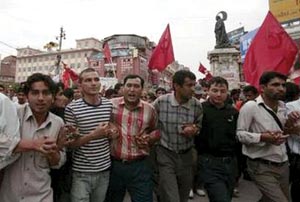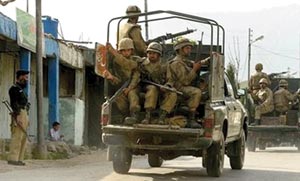|
|
|
ADVERTISEMENTS
|
|
PREMIUM
- HAPPY HOLIDAYS!
- Siliconeer Mobile App - Download Now
- Siliconeer - Multimedia Magazine - email-Subscription
- Avex Funding: Home Loans
- Comcast Xfinity Triple Play Voice - Internet - TV
- AKSHAY PATRA - Bay Area Event - Sat. Dec 6
- Calcoast Mortgage - Home Loans
- New Homes in Silicon Valley: City Ventures - Loden Place - Morgan Hill
- Bombay to Goa Restaurant, Sunnyvale
- Buying, Sellling Real Estate in Fremont, SF Bay Area, CA - Happy Living 4U - Realtor Ashok K. Gupta & Vijay Shah
- Sunnyvale Hindu Temple: December Events
- ARYA Global Cuisine, Cupertino - New Year's Eve Party - Belly Dancing and more
- Bhindi Jewellers - ROLEX
- Dadi Pariwar USA Foundation - Chappan Bhog - Sunnyvale Temple - Nov 16, 2014 - 1 PM
- India Chaat Cuisine, Sunnyvale
- Matrix Insurance Agency: Obamacare - New Healthcare Insurance Policies, Visitors Insurance and more
- New India Bazar: Groceries: Special Sale
- The Chugh Firm - Attorneys and CPAs
- California Temple Schedules
- Christ Church of India - Mela - Bharath to the Bay
- Taste of India - Fremont
- MILAN Indian Cuisine & Milan Sweet Center, Milpitas
- Shiva's Restaurant, Mountain View
- Indian Holiday Options: Vacation in India
- Sakoon Restaurant, Mountain View
- Bombay Garden Restaurants, SF Bay Area
- Law Offices of Mahesh Bajoria - Labor Law
- Sri Venkatesh Bhavan - Pleasanton - South Indian Food
- Alam Accountancy Corporation - Business & Tax Services
- Chaat Paradise, Mountain View & Fremont
- Chaat House, Fremont & Sunnyvale
- Balaji Temple - December Events
- God's Love
- Kids Castle, Newark Fremont: NEW COUPONS
- Pani Puri Company, Santa Clara
- Pandit Parashar (Astrologer)
- Acharya Krishna Kumar Pandey
- Astrologer Mahendra Swamy
- Raj Palace, San Jose: Six Dollars - 10 Samosas
CLASSIFIEDS
MULTIMEDIA VIDEO
|
|
|
|
|
NEWS DIARY | APRIL
Nepali Army Denies Coup Reports | Islamabad Intensifies Efforts to Flush out Taliban | High Alert | Diarrhea Epidemic | Lanka Snubs Sweden | Solar Lanterns | Anger over Economic Zone | Fury over Gurkha Plan
Nepali Army Denies Coup Reports
 Protesters in Kathmandu demand that Nepal Army Chief Rookmangud Katawal be sacked. Protesters in Kathmandu demand that Nepal Army Chief Rookmangud Katawal be sacked.
Warily watching the dogged duel between its chief and the ruling Maoist party and grieving for the death of 13 soldiers in a forest fire, Nepal’s beleaguered army was dragged into fresh controversy by a leading media house whose two dailies accused it of planning a coup.
In a sensational front-page report yesterday, two of Nepal’s leading dailies claimed to have been informed by unnamed “senior army officers” that the Nepal Army, once the arch enemy of the Maoists, had planned a “soft coup” to prevent the former guerrillas from establishing their control over the state forces.
According to Nepali daily Kantipur and its sister English publication the Kathmandu Post, the army plot was to “arrest” Maoist leaders, ministers and “other selected individuals,” including the former supreme commander of the army, deposed king Gyanendra.
The former king was to have been put under “line arrest” in the remote old palace in the Nagarjuna forest where he retired after being stripped of his crown and vacating the Narayanhity royal palace last year.
“(Maoist) Prime Minister Pushpa Kamal Dahal, (opposition) Nepali Congress president Girija Prasad Koirala and a number of other leaders (would have been) cut off from public,” the reports said, presenting almost a mirror-image of the situation that had prevailed in Nepal four year ago after Gyanendra sought to head the government with the support of the army.
The two dailies alleged that army officers began plotting the new coup after the Maoist government trained its guns on army chief Gen. Rookmangud Katawal and tried to dismiss him.
|TOP|
Islamabad Intensifies Efforts to Flush out Taliban
 Pakistan troops patrol in Lower Dir. Pakistan troops patrol in Lower Dir.
Pakistan troops backed by war planes launched a new operation in Buner town near the Swat valley as Islamabad intensified its efforts to flush out Taliban militants there.
"The military launched an operation at 4:00 pm," chief military spokesman Major General Athar Abbas told a news conference.
"The army and the Frontier Corps troops have entered Buner," he said, adding that "fighter jets are also being used."
A senior military official earlier told AFP that war planes were pounding suspected militant hideouts on the mountains overlooking the town, but he had no casualty figures.
The latest operation follows an offensive mounted in Lower Dir, which Abbas said had now been completed.
He added 70-75 militants had been killed in that operation and that "10 security personnel have been martyred."
Abbas said that while there "are no foreign militants in Swat," intelligence reports said that "militants are getting weapons and communication equipment from outside Pakistan."
"They are using Kalashnikovs, small arms, rocket launchers, grenades, mines and explosives."
Reporters were also shown the transcript of a telephone conversation between radical cleric Maulana Fazlullah and a military commander in which they planned a "symbolic" withdrawal of militants from Buner.
|TOP|
High Alert
India has increased surveillance at international airports and ports as part of global measures to check the spread of swine flu.
Passengers arriving on flights from the U.S., Canada and Mexico are being checked for the virus, health officials say.
In Goa, officials are trying to track down British tourists who arrived there after the deadly outbreak.
The virus is thought to have killed nearly 160 people in Mexico, where it was first found.
The number of swine flu cases globally is rising and the U.S. has confirmed that the death of a 23-month-old child there is the first fatality outside Mexico.
Swine flu is usually found in pigs and contracted only by people in contact with the animals.
It can also spread from person to person — probably through coughing and sneezing.
As a potential pandemic edges closer, governments around the world have been stepping up precautions against its spread.
Officials in India have also decided to increase the country's reserves of the antiviral drug Tamiflu.
|TOP|
Diarrhea Epidemic
 A kid drinking water in Bangladesh. A recent heat wave has led to people drinking unsafe water with diarrhea reaching epidemic proportions. A kid drinking water in Bangladesh. A recent heat wave has led to people drinking unsafe water with diarrhea reaching epidemic proportions.
Thousands of people are being treated for diarrhea across Bangladesh as high temperatures mean people are drinking more water which is often unclean.
Health officials warn that more people are likely to need treatment as they consume water in the hottest temperatures for more than 20 years.
They warn that people living in the capital Dhaka are particularly at risk.
They have to contend with the humidity as well as water shortages, power cuts and overcrowded hospitals.
“We’re treating the highest number of patients in the pre-monsoon season during our 45 years in existence,” Dr Azharul Islam Khan of the International Centre for Diarrheal Disease Research told the AFP news agency.
“The situation is very grim and reaching epidemic levels in Dhaka and its outskirts. An acute crisis of water and an unusually prolonged heat wave are to blame for such a severe outbreak.”
The hospital says that at least 16 people have died of diarrhea-related illnesses since the beginning of March — and the hospital has treated more than 40,000 patients since then.
Recently Meteorological Office director Sujit Deb Sharma told the BBC that the temperature in Dhaka was 39.6C, the highest in the city for 35 years.
He said that in the district of Jessore in the south-west of the country, the temperature was 42.3C, the highest in Bangladesh for 22 years.
Sharma said that a lack of moisture from the Bay of Bengal was contributing to the heat wave, while sub-tropical high pressure was blocking the flow of moisture.
However he said that rain was expected in the next few days.
|TOP|
Lanka Snubs Sweden
 Swedish Foreign Minister Carl Bildt Swedish Foreign Minister Carl Bildt
Sri Lanka barred Sweden’s foreign minister from entering the island on a humanitarian mission, as diplomatic tensions mounted over the conduct of the war on the Tamil Tigers.
Swedish Foreign Minister Carl Bildt had been due to travel to the war-torn country this week to press demands for aid workers to be given full access to civilians trapped by heavy fighting between government troops and the rebels.
But a Sri Lankan Foreign Ministry official indicated that Colombo felt it had already done enough by allowing Britain and France’s top diplomats — David Miliband and Bernard Kouchner — to visit.
“The Swedish minister also wanted to jump on that bandwagon and we said no,” the official said.
“Some think they can land up at our airport and expect a red carpet treatment. We are not a colony and neither a bankrupt Third World country. Our main donors are in Asia, not in Europe,” the official added.
Bildt said he had been denied a visa and described the snub as “exceedingly strange behavior.” He was recalling the top Swedish diplomat to Colombo.
Czech Foreign Minister Karel Schwarzenberg, whose country holds the EU’s rotating presidency, said Sri Lanka’s government had made a “grave mistake” that will “have repercussions in Europe and will influence the further relations between the Sri Lankan government and the European states.”
Sri Lanka’s Foreign Ministry said Bildt had not made a formal application for a visa and his plan to visit the island had not been discussed when the joint visits of French and British ministers were considered.
“It needs to be understood that in this instance there had been no formal prior consultations with the government of Sri Lanka with regard to the visit of the Swedish Foreign Minister,” the foreign ministry statement said.
It added that statements from the EU “seem to be emanating from a unilateral decision made on the part of Sweden and the EU with regard to the said visit.”
|TOP|
Solar Lanterns
Solar energy has the potential to improve the living conditions of poor rural households in India as well as contribute to the country’s future energy security, according to Professor Govindasamy Agoramoorthy from Tajen University, who is Tata-Sadguru Visiting Chair, and Dr. Minna Hsu from the National Sun Yat-sen University in Taiwan.
Their study, looking at the benefits of solar lanterns on the livelihoods of village communities in Western India, as well as sustainable use of the environment, has just been published online in Springer’s journal Human Ecology.
In India, approximately 70 percent of rural areas lack electricity and over 60 percent of rural households use kerosene lamps for lighting. Kerosene lamps are not only expensive, they are also inefficient, potentially dangerous and a major source of greenhouse gases. Interestingly, the average number of sunny days in India ranges from 250 to 300 days a year, with a solar energy equivalent greater than the country’s total energy consumption. Energy efficiency is critical to nations such as India with large and growing populations. Solar lanterns, which make the most of the country’s natural and abundant sunshine, could be a practical and clean energy alternative to kerosene lamps in village communities.
Sadguru Foundation, a non-profit agency specializing in natural resources management in India, supplied 100 solar lanterns to socially and economically disadvantaged households in 25 villages in the Dahod District of the Gujarat State between January 2004 and December 2007. Agoramoorthy and Hsu studied the effects of using solar lanterns on energy usage, household savings in terms of kerosene and electricity costs, as well as the family’s quality of life. The women in the households were interviewed a month before and again a month after the introduction of the solar lanterns.
Overall, expenditure on kerosene and electricity dropped significantly in all households, after the solar lanterns were introduced. On average each household made important savings ranging from $150 to $250 annually. Whereas both households above and below the poverty level used a similar amount of electricity before the lanterns were introduced, after their introduction households below the poverty level used significantly less electricity than those above the poverty level.
|TOP|
Anger over Economic Zone
Shivaji Patil, 69, is firmly against a proposed Special Economic Zone in his village about 56 miles from Mumbai.
He stands to lose about seven acres of farmland if the scheme goes ahead.
In this election, the issue of land acquisition for SEZs is a priority for the voters of the Raigad and Maval constituencies, where several are planned. However, most political parties have not made it a part of their manifesto and as a result the election atmosphere is low key.
About 22 villages in Raigad stand to lose 5,700 acres of land for an SEZ proposed by Reliance industries.
The villages are part of the MahaMumbai SEZ (Great Mumbai SEZ), which is planned to spread over 45 villages in total and more than 20,000 acres of land.
In a rare public opinion exercise in September 2008, more than 80 percent of farmers voted against the proposed SEZ.
The SEZ idea has generated much controversy
Farmers are increasingly impatient with what they see as the non-committal stand by political parties over the issue.
They almost unanimously oppose the Congress-led government’s refusal to accept the public opinion exercise.
But they do not agree on what they want for their land in future.
Patil, who worked as a primary schoolteacher for 40 years while simultaneously running his farm, has opposed the SEZ for more than two years.
“We are not starving, there is no need for us to sell our land at such throwaway prices to the private companies,” he says.
However, he does attach an important proviso.
If he gets a “good price,” (nearly 10 times what is proposed) and is assured of not being displaced, he is willing to give up his land.
Most farmers oppose the SEZs because they say they will lose crops at a time when a soon-to-be-completed dam will ensure high quality irrigation and more produce.
They allege that the government is now postponing the irrigation scheme and delaying the supply of water to this land in a bid to hasten their departure.
|TOP|
Fury over Gurkha Plan
Campaigners have reacted with anger to new rules on the eligibility of Gurkha veterans to live in the UK.
The Home Office said that new rules would allow about 4,300 more to settle, but the Gurkha Justice Campaign said it would be just 100.
Actress Joanna Lumley, a campaigner for the Gurkhas, said the announcement made her “ashamed of our administration.”
Immigration Minister Phil Woolas denied he had betrayed the Gurkhas, adding: “This improves the situation.”
He said: “It has never been the case that all Gurkhas pre-1997 were to be allowed to stay in the country. With their dependants you could be looking at 100,000 people.
“It’s simply not true that we have betrayed the Gurkhas. When people read the guidelines they will see the sense of them.”
In September 2008, the High Court ruled that immigration rules denying Gurkhas who retired before 1997 — about 36,000 — an automatic right to stay in the U.K. were unlawful.
Peter Carroll, from the Gurkha Justice Campaign, said the fight to allow them to stay in this country would continue with renewed vigor.
He added: “The one group of people that has never let this country down has been let down today in a manner which is truly appalling.”
David Enwright, a solicitor representing the Gurkhas, said: “This government, Mr Woolas, should hang their head in shame so low that their forehead should touch their boots.
“This is a disgrace and a betrayal of our armed forces and our veterans.”
Dhan Gurung, the first ex-Gurkha to be elected as a councillor in the U.K., said the announcement was “insulting to loyal Gurkhas.”
He added: “If they want Gurkha soldiers, they should treat them equally.”
|TOP|
|
|
|
|
|
|